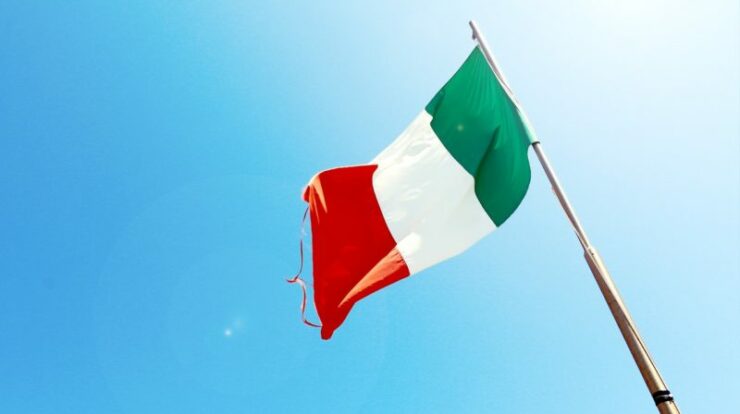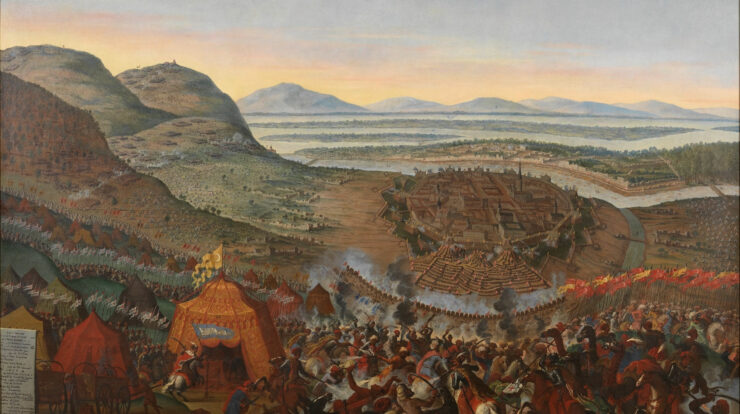
I’m glad you asked about this fascinating subject! Dante Alighieri is known for his beautiful lyrical poetry and is often called the “father of the Italian language.” Dante was born in Florence, Italy, in 1265 and died in 1321. His great works, especially the Divine Comedy (Divina Commedia), had a giant impact on the growth of the Italian language and literature. It is with immense honor that I talk about Dante’s legacy in lyrical poetry, his effect on the Italian language, and the reason he holds this title.
1. Overview of Dante Alighieri
In the late Middle Ages, Dante Alighieri lived in Florence, Italy. He was a poet, writer, and philosopher. Political unrest and cultural change were common during Dante’s lifetime. Fighting between the Guelphs and the Ghibellines forced him to leave his beloved Florence. Even though he had a hard life, his ideas and writing changed the course of European literature. His most famous work, The Divine Comedy, is one of the best literary successes ever, not just for its great poetry but also for helping to standardize Italian.
Latin was the main language used for academic and artistic works across Europe at the time that Dante wrote. The vernacular spoken by the people in his area, the Tuscan version of Italian, was the language he decided to write in. This revolutionary choice laid the foundation for the current Italian language.
2. Why Dante is Considered the Father of the Italian Language
A few important things make Dante the father of the Italian language:
- Language Use: At a time when most important literature was written in Latin, Dante was brave enough to write his most important works in the Tuscan dialect, which is the language spoken in Tuscany. This meant that his poetry and prose were accessible to a wider audience than just the educated class with knowledge of Latin.
- Italian became the standard language: His works, especially the Divine Comedy, were crucial in making the Tuscan speech the standard Italian language. Writers and scholars who came after Dante used his style of writing, which helped bring together Italy’s different regional dialects over time into a single national language.
- Literary Influence: Dante’s writing showed that the vernacular could be used for high art and deep philosophical ideas, raising Italian’s status as a language capable of meaningful expression. Other renowned writers, like Petrarch and Boccaccio, were inspired by him to write in Italian, which made it even more important as a language for writing.
It was a big societal shift when Dante chose to value the language of the common people over Latin. The term “father of the language” was bestowed upon him because his works served as a guide for language development.
3. Dante’s Lyrical Poetry
Dante is also renowned for his lyrical poetry, which shows how well he could use feeling, imagery, and beautiful language. His poetry often deals with love, faith, and the struggles of people, and it has touched them deeply for hundreds of years. We can summarize his lyrical style as follows:
- Emotional Depth: Dante’s poetry shows how complicated human emotions are, especially in the way he writes about love and longing. La Vita Nuova (The New Life), one of his early works, is a collection of poems and prose that tells the story of his idealized love for Beatrice, a woman who became his muse and a sign of divine inspiration.
- New Forms: Dante was one of the first poets in Italy to write in the “sweet new style,” which focused on polished language, spiritual love, and self-reflection. Many writers have been inspired by this style, which set a new standard for lyrical expression.
- Imagery and Allegory: His poetry combines the personal with the general by using lively imagery and allegorical meaning. For instance, in the Divine Comedy, Dante’s journey through Hell, Purgatory, and Paradise serves as both a true narrative and a metaphor for the soul’s quest for redemption.
Dante’s lyrical skill comes from the way he can easily convey deep philosophical and religious ideas through lines that are emotionally charged and easy to understand. This makes his poetry both mentally stimulating and deeply moving.
4. Key Works and Their Impact
Dante wrote a lot, but these are the ones that really stand out for what they did for the Italian language and lyrical poetry:
- La Vita Nuova, or “The New Life,” is a work that tells the story of Dante’s love for Beatrice. It was written between 1292 and 1295 and is a mix of poetry and prose. This piece perfectly displays his lyrical style and early attempts to write in the vernacular. The text not only talks about love and spiritual themes, but it also shows how powerful the Italian language can be.
- Also known as “Divine Comedy.” This epic poem, which was written by Dante between 1308 and 1321, is his most important work. It tells the story of Dante’s journey through the world, which is split into three parts: Inferno (Hell), Purgatorio (Paradise), and Paradiso (Paradise). Virgil and then Beatrice accompany Dante on his trip. The Divine Comedy is one of the most important works of Italian literature. It shows how creative and talented Dante was with language and poetry. Italian as a written language became more common because of its use of the Tuscan dialect.
- Unfinished work De Vulgari Eloquentia, written in Latin, examines the use of the vernacular in poetry and makes the case for the high status of the Italian language. In it, Dante makes a conscious effort to raise the status of his language.
These works solidify Dante’s legacy as both a language pioneer and a lyrical poet.
5. Summary Table of Dante’s Contributions
| Aspect | Contribution | Key Work/Example |
|---|---|---|
| Language Development | Used the Tuscan dialect to write major works, standardizing Italian. | Divine Comedy |
| Literary Innovation | Demonstrated the vernacular’s capacity for high art and complex ideas. | La Vita Nuova |
| Lyrical Poetry | Pioneered the dolce stil novo style, focusing on refined, spiritual love. | Poems in La Vita Nuova |
| Cultural Impact | Inspired future writers like Petrarch and Boccaccio to write in Italian. | Influence on Renaissance literature |
6. Final Thoughts and Key Takeaways
In conclusion, Dante Alighieri is known as the “father” of the Italian language because he was the first to write in the Tuscan dialect, which helped lay the foundation for modern Italian. His emotional depth, unique style, and vivid imagery in his lyrical poetry have profoundly influenced the world of literature. In works like “The Divine Comedy” and “La Vita Nuova,” Dante not only created timeless art, but he also raised the status of the Italian language by showing that it could communicate the most complex and beautiful ideas.
The way Italian is spoken and written today is a legacy of Dante. People continue to admire his literary efforts. His reach goes beyond Italy; he has an effect on literature around the world and inspires many writers and scholars. If you’re interested in learning more about his works, I suggest beginning with La Vita Nuova to appreciate his lyrical style or with the Inferno to experience his grand storytelling.


